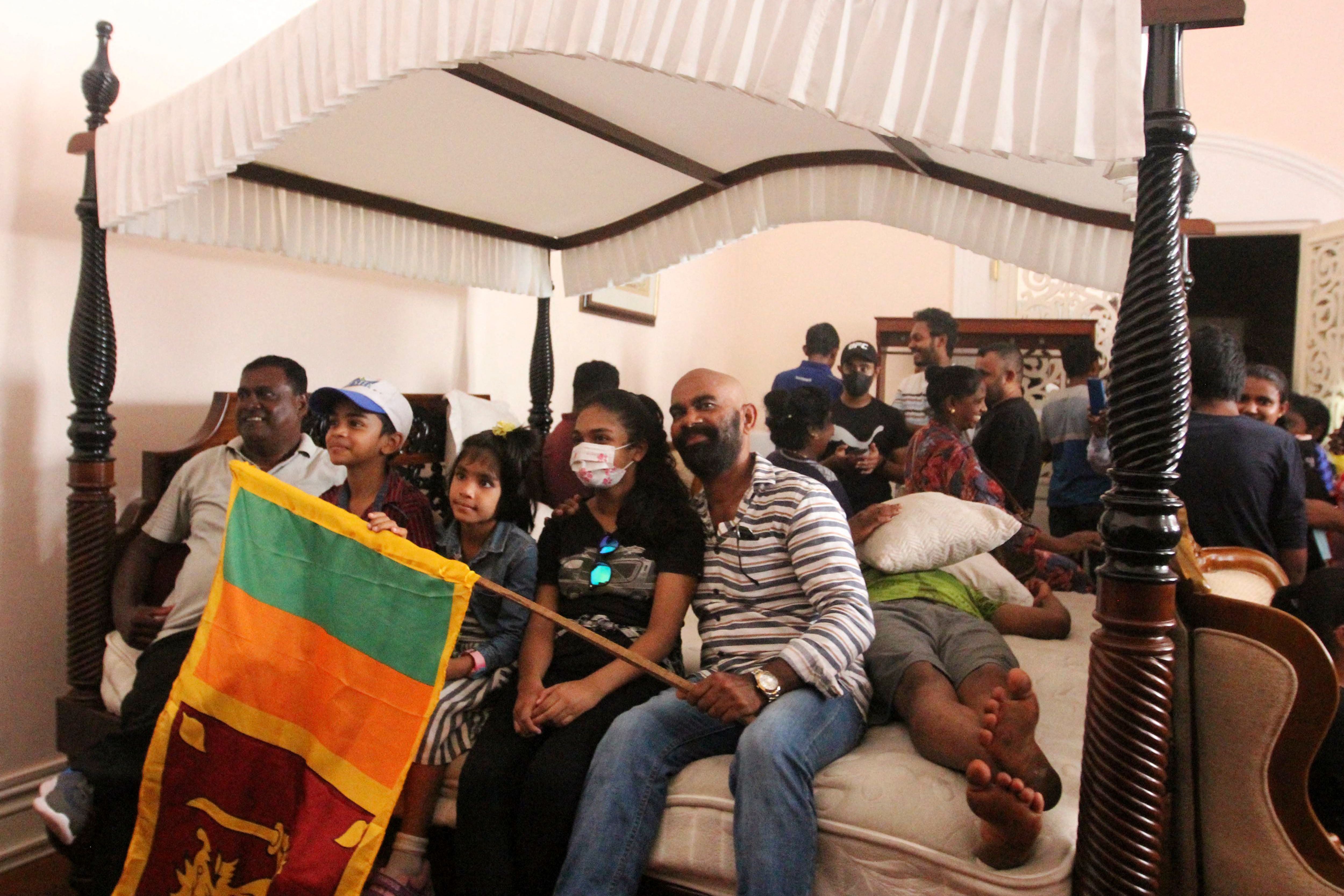The Sri Lankan crisis should be a warning to us all
The tragedy does not merely belong to Sri Lanka – what is occurring there is happening elsewhere, writes David Harding


If it wasn’t so sad, the images would be funny. Sri Lankans working out in the president’s gym, swimming and soaping themselves to wash in his pool, even wrestling on his bed, having broken into Gotabaya Rajapaksa’s palace.
As a Brit, there was a part of me watching the scenes in Sri Lanka that made me feel like storming into 10 Downing Street and lounging on one of Boris and Carrie’s £7,500 sofas before serving myself a drink from their £3,675 Nureyev drinks trolley.
But as comical as some of the images seemed, they were actually tragic.
Yes, people power has triumphed to a degree and the all-powerful Mr Rajapaksa has agreed to stand down on 13 July. But once the euphoria of change subsides, Sri Lankans will still be left with the wreckage of his disastrous rule.
Sri Lanka’s economy has collapsed under the weight of debt totalling more than $50bn (£42bn). The country is nowhere close to being able to pay it back, and unable to afford interest payments, let alone the actual billions borrowed.
The rupee has collapsed making imports for basics including fuel, food and toilet paper too expensive for many. Sri Lankans are missing meals and going hungry, not because their country does not produce enough food but because prices have risen by almost 60 per cent in recent weeks. Nine out of 10 families are skipping meals daily, says the UN.
Shock after shock – government mismanagement and corruption, the pandemic, the collapse of the tourism industry, home terror, the huge amounts owed to China, the Ukraine war and its impact on fuel and food – have all struck to hit Sri Lanka and left the island nation barely afloat.
But the tragedy does not merely belong to Sri Lanka. The country is serving as a warning to the rest of the world, especially the most vulnerable, indebted nations at a time of rampant energy and food inflation. What is happening there could, and is, happening elsewhere.
As Sri Lankans frolicked in the president’s pool, Argentinians were on the streets, protesting against inflation and corruption. Pakistan, a tinderbox politically, has just avoided a debt default and wants an IMF bailout. Laos and Zambia are suffering their own crises.
Nations far less vulnerable have sought to protect their own citizens, including Germany and France. They may be able to hold off the worst effects but it’s clear that the crises we have been warned about are already here.
Yours,
David Harding
International editor






Join our commenting forum
Join thought-provoking conversations, follow other Independent readers and see their replies
Comments